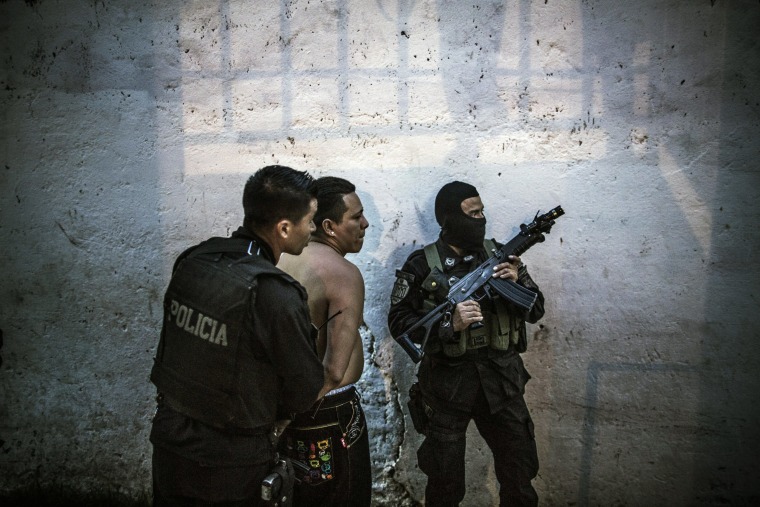El Salvador is experiencing one of its most violent months since its civil war more than two decades ago.
As of May, there were 635 homicides reported, and June is building up to break that mark.
The latest bloodshed came Sunday when suspected gang members murdered two soldiers guarding a bus terminal in the country’s capital.
When night comes, stores close early and the streets empty out while police officers put up roadblocks to protect the police station—a place cops have made their home rather than face attacks on the street from gangs.
Recently, women have been going to hair salons to dye their hair; rumors have circulated that gang members are only allowing their girlfriends to have red or blonde hair and wear the colors red and yellow. Though gangs have issued a statement denying the hair-color rumor, women still feel they need to take precautions.
“You don't wait for clarifications,” said Maria Jose Estrada, a former blonde who lives on the outskirts of San Salvador. “These people are crazy and they will kill you.”
Police officials and others blamed the increase in violence on the breakdown of a truce between the government and gangs in 2013. While the homicide rate plunged, it gave the gangs time to strengthen, train and acquire more sophisticated arms, and its leaders ran the gangs from facilities with looser security.
In January, President Salvador Sanchez Ceren rejected the truce and cracked down on gang leaders, moving them back to high-security prisons.
“You take away the mature leadership, and you get a structure that is made up of younger, fanatical people who want to make a name for themselves,” said Raul Mijango, a former guerrilla and a facilitator of the truce. “They want war.”
Assistant national police chief Howard Cotto says nothing will change unless El Salvador addresses the issues of poverty and lack of opportunity for young people. The government has arrested 12,000 gang members in the last year with little to show for it, he said.
--The Associated Press
